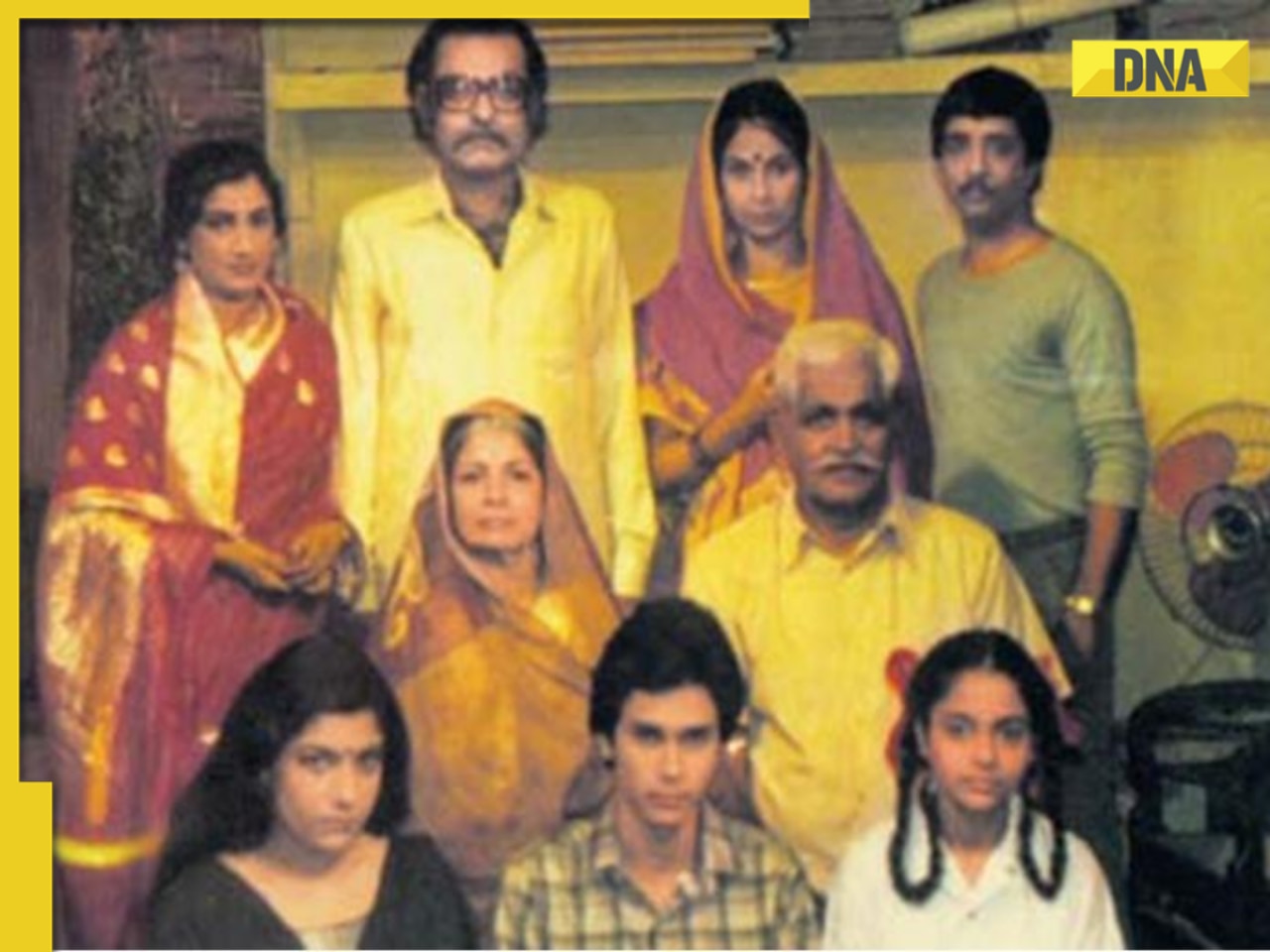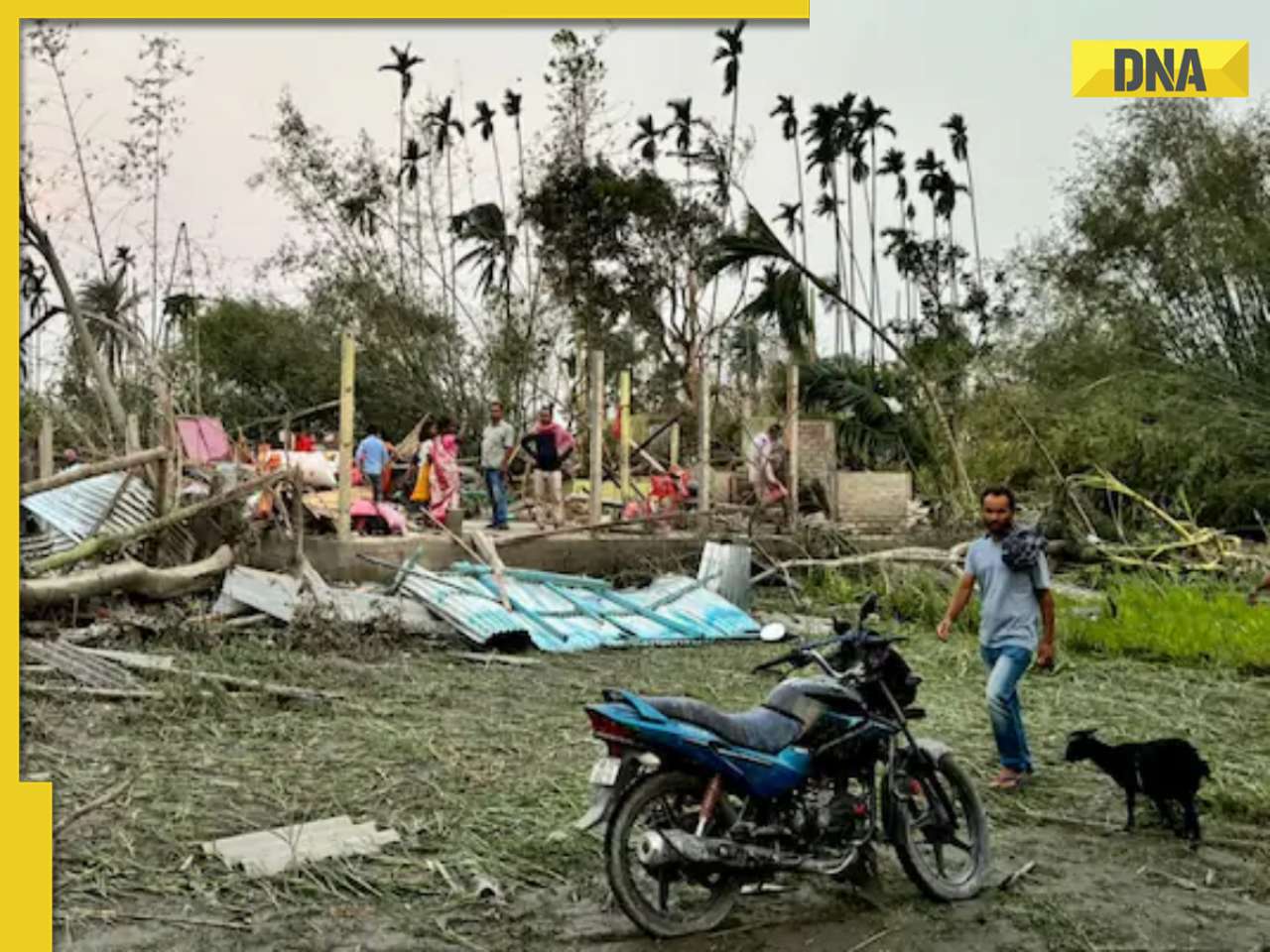With the FIFA World Cup 2022 only a few months ahead, Qatar is finally prepared to host the world's biggest sporting event.
Doha: With the FIFA World Cup 2022 only a few months ahead, Qatar is finally prepared to host the world's biggest sporting event. Major adjustments have been undertaken to enhance the living circumstances of migrant laborers, which have been praised by the International Labour Organization (ILO), the United Nations (UN), FIFA, and other important organizations, with Qatar today being seen as a migrant worker-friendly model in the Middle East.
A high-level mission from the African Regional Organisation of the International Trade Union Confederation (ITUC-Africa) and the ITUC-Asia Pacific visited Doha, Qatar on a working mission from the 19th to the 20th of February 2022. The purpose of the visit was to gain a better understanding of labor reforms and their implementation in Qatar, identify gaps in complete protection of labor rights, and give recommendations to improve migrant workers' living and working conditions.
The African trade union movement, the ITUC-Asia Pacific, the International Trade Union Confederation (ITUC), and Qatar collaborated on this mission to improve and increase social participation. It's worth noting that the number of African and Asian migrants living and working in Qatar is substantial and growing. In addition, as Qatar prepares to host the FIFA World Cup later this year, the number of migrants arriving in the country has increased substantially.
Nonetheless, the International Trade Union Confederation (ITUC) initiated a campaign to ensure that host nations of major sporting events follow norms and legislation that protect the labor and human rights of migrant workers. As an outcome, the International Trade Union Confederation (ITUC) and other Global Union Federations teamed up with the International Labour Organization (ILO) to reform Qatar's labor laws and practices.
The mission lauds and feels that the Qatari government's reform initiatives are progressive.
Leaders from Qatar's Ministry of Interior and Ministry of Labour, as well as labor attachés from many countries of origin, met with the expedition. The delegation also interacted with migrant community representatives and community liaison authorities from throughout the world. The crew attended a conference of the Central Labour-Management Consultation Committee of Qatar Foundation's main contractors and paid visits to labor mediation tribunals, a Red Crescent migrant workers' clinic, and a communal living facility. The team also met and interacted with migrant workers to gain firsthand knowledge of their working environments.
The delegation commended recent measures in Qatar aimed at better safeguarding migrant workers from exploitation, including the passage of a minimum wage statute in March 2021. It is now fixed at QAR 1000 plus decent food and accommodation for all laborers of all ethnicities in all businesses, including domestic labor, or a monthly stipend of minimum QAR 300 for food and QAR 500 for accommodation. Since then, nearly 280,000 workers, or 13% of the total workforce, have had their basic wages raised to the minimum wage, and many have benefited from the obligatory allowances.
Despite certain obstacles, notably from companies and long-standing culture, the mission is confident that the reforms are real and being enacted as a fruit of these visits and dialogues. Qatar has already enforced a number of best practise efforts, such as the elimination of exit visas, the freedom to change enterprises, which has resulted in the transformational reform of the Kafala sponsorship system, and the implementation of a national minimum wage payment that incorporates housing and food, with those who decide not to use the company's accommodation and food provisions being paid in lieu. Better safety and health standards in construction sites and anywhere the average temperature exceeds a certain level; signing labor contract arrangements in a designated site (Qatar Visa Centres) before migrant labor departs to avoid discrepancies upon arrival in Qatar; and the establishment of a workers' representative council are among some of the reforms.
According to the mission, community leaders play a key role in Qatar. The mission suggests that the number of community leaders be increased to assist workers in understanding the complaints system and sharing information about changes. Trade unions in the birth country can assist in the training of these community leaders.
Recognizing the critical role of migrant workers in the country, the mission urges the Qatari administration to persevere and be bold in pursuing labor reforms that are bolstered by strong implementation, such as ensuring that companies are penalized for violations of labor rights to deter future violations. Qatari Minister of Labor Ali bin Samikh al-Marri revealed that many local companies have already been punished and barred when found guilty of violating any laws concerning migrant workers.
“We have done landmark changes to the migrant workers conditions and we are very satisfied with our achievement. We still have more plans in place to ensure zero violations and maximum reforms” Ali bin Samikh al-Marri added that Qatar migrant workers reforms are still underreported where some human rights organisations and media outlets refuse to see the milestones we did and choose to focus on some issues (which we still tackle).
He noted that Qatar record on migrant workers is very good in comparison with some European countries which have problems for migrant workers such as slavery conditions of workers in the UK or human trafficking of workers from east to west European nations.
The mission lauds Qatar's significant advances in migrant worker pay and workplace conditions, and praises the government for its long-term commitment, according to a press release. Qatar is by far the regional leader in terms of worker participation and social discourse, free mobility of workers, labor law, and global collaboration and transparency.
Finally, one of the many positive consequences of this visit is the Qatari government's firm commitment to continue to encourage collaboration between Qatar and member nations of the International Trade Union Confederation (ITUC) in order to advance the fair employment of more migrant laborers.
(Sponsored feature)
![submenu-img]() Firing at Salman Khan's house: Shooter identified as Gurugram criminal 'involved in multiple killings', probe begins
Firing at Salman Khan's house: Shooter identified as Gurugram criminal 'involved in multiple killings', probe begins![submenu-img]() Salim Khan breaks silence after firing outside Salman Khan's Mumbai house: 'They want...'
Salim Khan breaks silence after firing outside Salman Khan's Mumbai house: 'They want...'![submenu-img]() India's first TV serial had 5 crore viewers; higher TRP than Naagin, Bigg Boss combined; it's not Ramayan, Mahabharat
India's first TV serial had 5 crore viewers; higher TRP than Naagin, Bigg Boss combined; it's not Ramayan, Mahabharat![submenu-img]() Vellore Lok Sabha constituency: Check polling date, candidates list, past election results
Vellore Lok Sabha constituency: Check polling date, candidates list, past election results![submenu-img]() Meet NEET-UG topper who didn't take admission in AIIMS Delhi despite scoring AIR 1 due to...
Meet NEET-UG topper who didn't take admission in AIIMS Delhi despite scoring AIR 1 due to...![submenu-img]() DNA Verified: Is CAA an anti-Muslim law? Centre terms news report as 'misleading'
DNA Verified: Is CAA an anti-Muslim law? Centre terms news report as 'misleading'![submenu-img]() DNA Verified: Lok Sabha Elections 2024 to be held on April 19? Know truth behind viral message
DNA Verified: Lok Sabha Elections 2024 to be held on April 19? Know truth behind viral message![submenu-img]() DNA Verified: Modi govt giving students free laptops under 'One Student One Laptop' scheme? Know truth here
DNA Verified: Modi govt giving students free laptops under 'One Student One Laptop' scheme? Know truth here![submenu-img]() DNA Verified: Shah Rukh Khan denies reports of his role in release of India's naval officers from Qatar
DNA Verified: Shah Rukh Khan denies reports of his role in release of India's naval officers from Qatar![submenu-img]() DNA Verified: Is govt providing Rs 1.6 lakh benefit to girls under PM Ladli Laxmi Yojana? Know truth
DNA Verified: Is govt providing Rs 1.6 lakh benefit to girls under PM Ladli Laxmi Yojana? Know truth![submenu-img]() Remember Jibraan Khan? Shah Rukh's son in Kabhi Khushi Kabhie Gham, who worked in Brahmastra; here’s how he looks now
Remember Jibraan Khan? Shah Rukh's son in Kabhi Khushi Kabhie Gham, who worked in Brahmastra; here’s how he looks now![submenu-img]() From Bade Miyan Chote Miyan to Aavesham: Indian movies to watch in theatres this weekend
From Bade Miyan Chote Miyan to Aavesham: Indian movies to watch in theatres this weekend ![submenu-img]() Streaming This Week: Amar Singh Chamkila, Premalu, Fallout, latest OTT releases to binge-watch
Streaming This Week: Amar Singh Chamkila, Premalu, Fallout, latest OTT releases to binge-watch![submenu-img]() Remember Tanvi Hegde? Son Pari's Fruity who has worked with Shahid Kapoor, here's how gorgeous she looks now
Remember Tanvi Hegde? Son Pari's Fruity who has worked with Shahid Kapoor, here's how gorgeous she looks now![submenu-img]() Remember Kinshuk Vaidya? Shaka Laka Boom Boom star, who worked with Ajay Devgn; here’s how dashing he looks now
Remember Kinshuk Vaidya? Shaka Laka Boom Boom star, who worked with Ajay Devgn; here’s how dashing he looks now![submenu-img]() DNA Explainer: How Iranian projectiles failed to breach iron-clad Israeli air defence
DNA Explainer: How Iranian projectiles failed to breach iron-clad Israeli air defence![submenu-img]() DNA Explainer: What is India's stand amid Iran-Israel conflict?
DNA Explainer: What is India's stand amid Iran-Israel conflict?![submenu-img]() DNA Explainer: Why Iran attacked Israel with hundreds of drones, missiles
DNA Explainer: Why Iran attacked Israel with hundreds of drones, missiles![submenu-img]() What is Katchatheevu island row between India and Sri Lanka? Why it has resurfaced before Lok Sabha Elections 2024?
What is Katchatheevu island row between India and Sri Lanka? Why it has resurfaced before Lok Sabha Elections 2024?![submenu-img]() DNA Explainer: Reason behind caused sudden storm in West Bengal, Assam, Manipur
DNA Explainer: Reason behind caused sudden storm in West Bengal, Assam, Manipur![submenu-img]() Firing at Salman Khan's house: Shooter identified as Gurugram criminal 'involved in multiple killings', probe begins
Firing at Salman Khan's house: Shooter identified as Gurugram criminal 'involved in multiple killings', probe begins![submenu-img]() Salim Khan breaks silence after firing outside Salman Khan's Mumbai house: 'They want...'
Salim Khan breaks silence after firing outside Salman Khan's Mumbai house: 'They want...'![submenu-img]() India's first TV serial had 5 crore viewers; higher TRP than Naagin, Bigg Boss combined; it's not Ramayan, Mahabharat
India's first TV serial had 5 crore viewers; higher TRP than Naagin, Bigg Boss combined; it's not Ramayan, Mahabharat![submenu-img]() This film has earned Rs 1000 crore before release, beaten Animal, Pathaan, Gadar 2 already; not Kalki 2898 AD, Singham 3
This film has earned Rs 1000 crore before release, beaten Animal, Pathaan, Gadar 2 already; not Kalki 2898 AD, Singham 3![submenu-img]() This Bollywood star was intimated by co-stars, abused by director, worked as AC mechanic, later gave Rs 2000-crore hit
This Bollywood star was intimated by co-stars, abused by director, worked as AC mechanic, later gave Rs 2000-crore hit![submenu-img]() IPL 2024: Rohit Sharma's century goes in vain as CSK beat MI by 20 runs
IPL 2024: Rohit Sharma's century goes in vain as CSK beat MI by 20 runs![submenu-img]() RCB vs SRH IPL 2024 Dream11 prediction: Fantasy cricket tips for Royal Challengers Bengaluru vs Sunrisers Hyderabad
RCB vs SRH IPL 2024 Dream11 prediction: Fantasy cricket tips for Royal Challengers Bengaluru vs Sunrisers Hyderabad ![submenu-img]() IPL 2024: Phil Salt, Mitchell Starc power Kolkata Knight Riders to 8-wicket win over Lucknow Super Giants
IPL 2024: Phil Salt, Mitchell Starc power Kolkata Knight Riders to 8-wicket win over Lucknow Super Giants![submenu-img]() IPL 2024: Why are Lucknow Super Giants wearing green and maroon jersey against Kolkata Knight Riders at Eden Gardens?
IPL 2024: Why are Lucknow Super Giants wearing green and maroon jersey against Kolkata Knight Riders at Eden Gardens?![submenu-img]() IPL 2024: Shimron Hetmyer, Yashasvi Jaiswal power RR to 3 wicket win over PBKS
IPL 2024: Shimron Hetmyer, Yashasvi Jaiswal power RR to 3 wicket win over PBKS![submenu-img]() Watch viral video: Isha Ambani, Shloka Mehta, Anant Ambani spotted at Janhvi Kapoor's home
Watch viral video: Isha Ambani, Shloka Mehta, Anant Ambani spotted at Janhvi Kapoor's home![submenu-img]() This diety holds special significance for Mukesh Ambani, Nita Ambani, Isha Ambani, Akash, Anant , it is located in...
This diety holds special significance for Mukesh Ambani, Nita Ambani, Isha Ambani, Akash, Anant , it is located in...![submenu-img]() Swiggy delivery partner steals Nike shoes kept outside flat, netizens react, watch viral video
Swiggy delivery partner steals Nike shoes kept outside flat, netizens react, watch viral video![submenu-img]() iPhone maker Apple warns users in India, other countries of this threat, know alert here
iPhone maker Apple warns users in India, other countries of this threat, know alert here![submenu-img]() Old Digi Yatra app will not work at airports, know how to download new app
Old Digi Yatra app will not work at airports, know how to download new app






































)




)
)
)
)
)
)